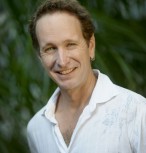DNA reveals the past and future of coral reefs
New DNA techniques are being used to understand how coral reacted to the end of the last ice age in order to better predict how they will cope with current changes to the climate. James Cook Univer

From 2005 to 2022, the main node of the ARC Centre of Excellence for Coral Reef Studies was headquartered at James Cook University in Townsville, Queensland (Australia)








Presented by: Dr Andrew Hoey
Where: Building 19 (Kevin Stark Research Building) Room #106 (upstairs), JCU, Townsville
When: Wednesday 22nd of April 2015 – 14:00 to 15:00 hrs
Abstract:Coral reefs are in global decline with many being overgrown by large fleshy macroalgae. Once established, such phase-shifts are difficult to reverse. Theoretical models have suggested that the stability of these states arises from interactions among elements that form positive feedbacks; reinforcing and maintaining the state. Despite their potential importance there is a current lack of empirical evidence for feedbacks, and hence our understanding of how feedbacks build or erode the resilience of reef systems is limited. In this seminar I will outline my recent research examining how key ecosystem processes on coral reefs are influenced by changes in the composition and biomass of macroalgae. Specifically, I will show how the physical and chemical properties of both individual macroalgae and macroalgal stands shape the foraging decisions, and functional impact of key herbivorous fishes, and how coral growth is impacted by increasing macroalgal density. I will then discuss the broader implications of these feedbacks in the context of reef resilience.
Dr Andrew Hoey is a Senior Research Fellow in the ARC Centre of Excellence for Coral Reef Studies at James Cook University. His research focuses on understanding the functional importance of different taxa to the resilience of coral reef ecosystems, the differential responses of fishes to changes in the benthic structure of coral reef habitats, and the relationship between biodiversity and ecosystem function. Andrew received his doctorate from James Cook University in 2011, after which he undertook a postdoctoral fellowship at King Abdullah University of Science and Technology (KAUST). He then returned to JCU and was awarded and ARC DECRA fellowship. Andrew is the current Vice-President of the Australian Coral Reef Society and Biology Editor for Coral Reefs.
New DNA techniques are being used to understand how coral reacted to the end of the last ice age in order to better predict how they will cope with current changes to the climate. James Cook Univer
A new study on the effects of climate change in five tropical countries has found fisheries are in more trouble than agriculture, and poor people are in the most danger. Distinguished Profess
James Cook University researchers have found brightly coloured fish are becoming increasingly rare as coral declines, with the phenomenon likely to get worse in the future. Christopher Hemingson, a
Researchers working with stakeholders in the Great Barrier Reef region have come up with ideas on how groups responsible for looking after the reef can operate more effectively when the next bleaching
Abstract: As marine species adapt to climate change, their heat tolerance will likely be under strong selection. Individual variation in heat tolerance and its heritability underpin the potential fo
Abstract: The Reef Ecology Lab in KAUST’s Red Sea Research Center explores many aspects of movement ecology of marine organisms, ranging from adult migrations to intergenerational larval dispersal
Abstract: Macroalgal meadows are a prominent, yet often maligned component of the tropical seascape. Our work at Ningaloo reef in WA demonstrate that canopy forming macroalgae provide habitat for ad
Abstract: Sharks are generally perceived as strong and fearsome animals. With fossils dating back at least 420 million years, sharks are not only majestic top predators but they also outlived dinosa
Abstract: Connectivity plays a vital role in many ecosystems through its effects on fundamental ecological and evolutionary processes. Its consequences for populations and metapopulations have been
Abstract: Evolution of many eukaryotic organisms is affected by interactions with microbes. Microbial symbioses can ultimately reflect host’s diet, habitat range, and even body shape. However, how
Abstract: The past few years have seen unprecedented coral bleaching and mortality on the Great Barrier Reef (GBR) but the consequences of this on biodiversity are not yet known. This talk will expl